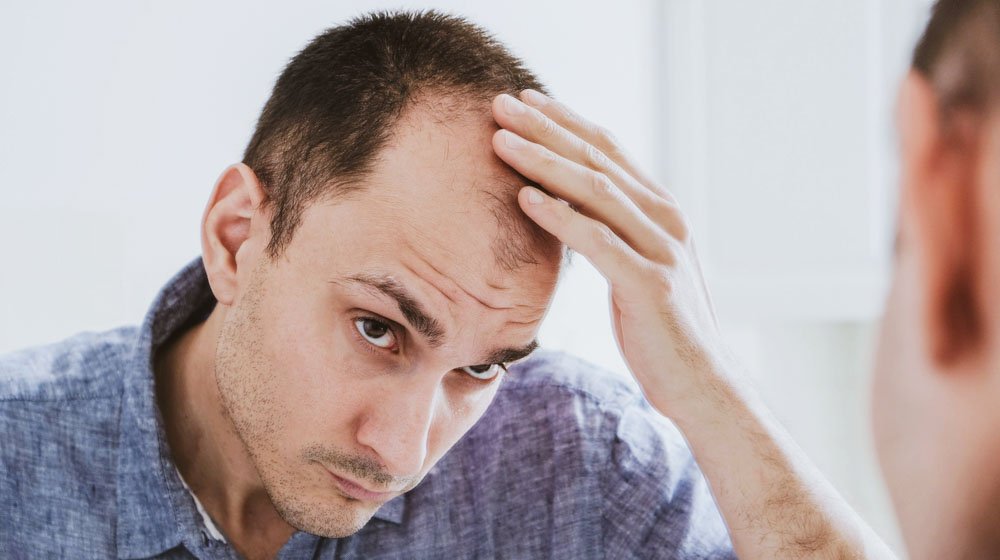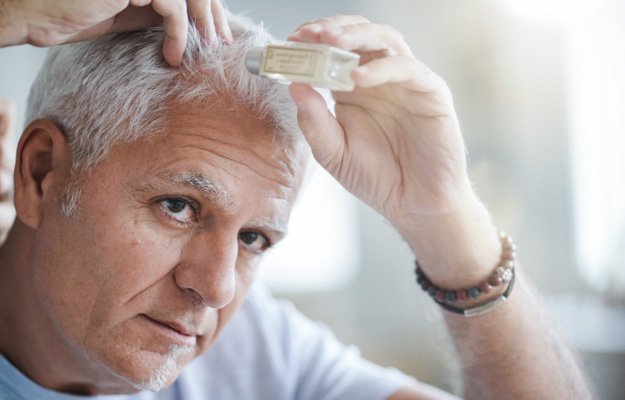
Hormone Health TRT

Losing an unusual amount of hair can be a cause for concern. Here we discuss what causes hair loss and the available treatments for prevention and cure.
RELATED: 5 Top Male Health Concerns and What You Can Do
Hair falling out is normal for people of all ages. According to the American Academy of Dermatologists, it is common to shed between 50 and 100 hairs a day. Excessive hair shedding beyond this range refers to a condition called telogen effluvium.
Hair loss or thinning hair in men can be caused by several health factors that can determine possible regrowth treatments. These factors include genetics, medical issues, and lifestyle and habits.
Androgenetic alopecia, also known as male-pattern baldness, is the most common type of hair loss caused by hereditary factors. It affects 50% of males over 40, although male pattern baldness can start as early as the teenage years.
This type of hair loss may lead to thinner and shorter hair strands. It usually starts with a receding hairline that progresses into a distinct M shape. Finally, the hair on the head’s top or back usually begins to fall out, leaving a bald spot.
Hair loss can be traced back to underlying medical conditions such as thyroid problems, physical and psychological stress, lupus, hormonal changes, and nutritional deficiencies of vitamins like D, B12, C, A, copper, selenium, and biotin.
In some circumstances, medication side effects, such as chemotherapy and antidepressants, may cause hair loss.
Lifestyle practices and habits may also contribute to hair falling out—for instance, excessive styling requires pulling your hair tight, such as cornrows. Overexposure to sunlight may also cause ultraviolet damage to the hair shaft.
Stress and hair loss can be related. These are associated with three types of hair loss caused by high levels of stress:
Hair loss caused by extreme levels of stress may not be permanent. However, hair growth may return to normal after recovering from stress.
Hair loss is one of the many signs of low testosterone in men. Testosterone is a major sex hormone associated with the appearance and development of male features. It is responsible for sex drive regulation, fat distribution, muscle mass, and production of sperm.
Low testosterone may also contribute to hair production. While hair loss is relatively common with aging, men with low testosterone levels may experience balding and hair loss in the body and face.
RELATED: What Causes Hypogonadism and How To Treat It

The treatment of hair loss in men depends on its underlying causes. The following are some of the treatment options to prevent and manage hair loss:
See your doctor if you are concerned about the amount of hair falling out. While hair loss can be expected, the surfacing of patchy or bald spots on the scalp, a gradual thinning on the top of the head, and full-body hair loss are signs that there may be an underlying health condition.
Are you concerned about your hair falling out? Opt health is a telemedicine platform that aims to reconnect men with wellness, sexual vitality, and strength through the science of preventive medicine. Find out what causes hair loss. Get personalized support and insight from top-tier physicians available for you 24/7. Contact us today.
Up Next:
Your health, your terms. Discover how personalized care can transform not just the way you feel, but how you live.